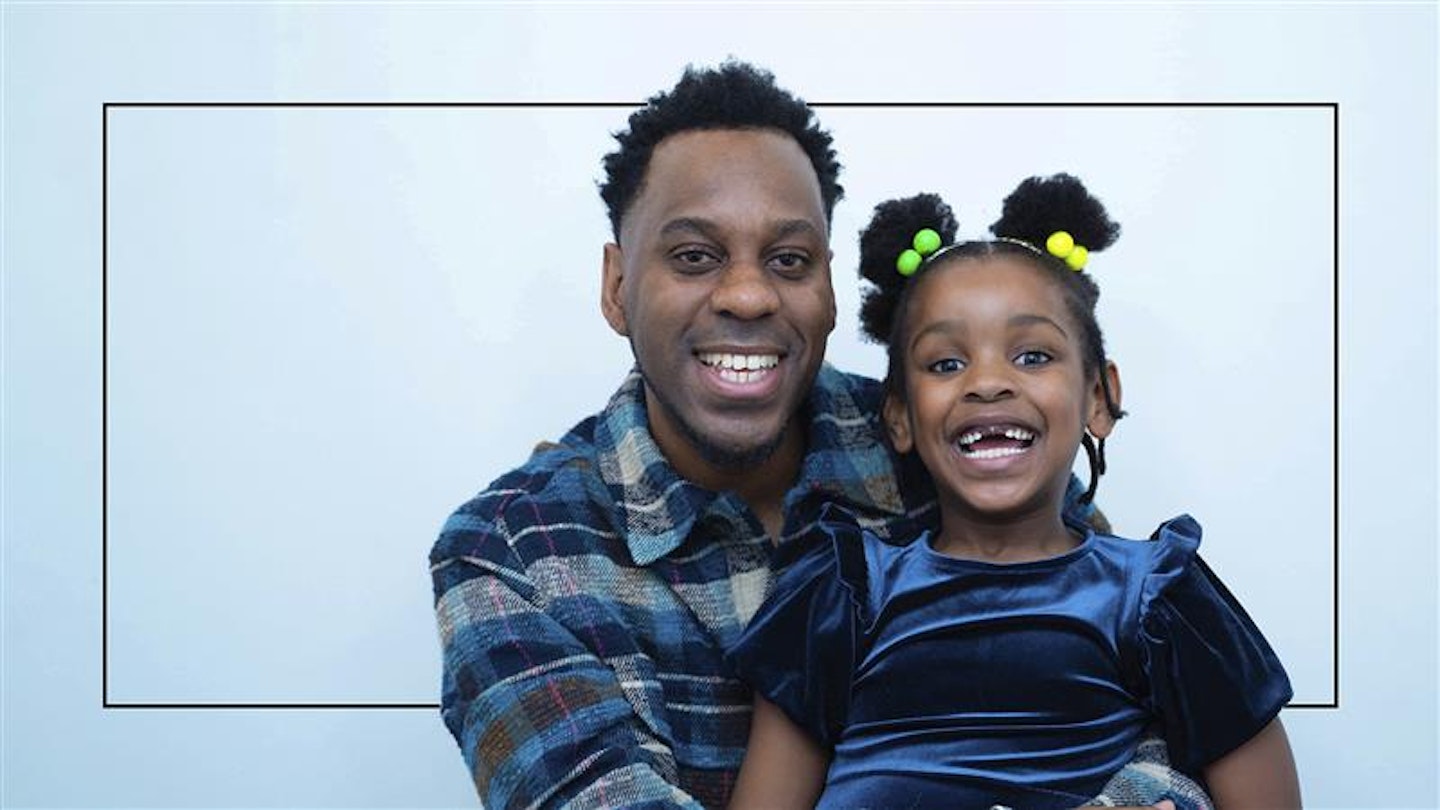‘It was 2015 and mental health – especially the mental health of dads – wasn’t really spoken about,’ says Elliott Rae, co-author of DAD and founder of Music.Football.Fatherhood, a platform about modern fatherhood.
Back then Elliott was a civil servant and expecting his first child with his wife. ‘The pregnancy was relatively straightforward, but then a routine test discovered my wife had Group B Strep. After a difficult labour, our daughter was born via ventouse, grey and lifeless, and needed emergency care. My wife also lost a lot of blood, so on one side of the room was a team of doctors resuscitating my daughter, and on the other side was a team trying to help my wife. We then spent the next two weeks in ICU.’
This was the start of Elliott’s post traumatic stress disorder (PTSD), which was compounded by the fact he used up his two weeks statutory paternity leave in neonatal intensive care and was back at his desk just a few days after the new family left hospital and returned home. Elliott started to become paranoid about his baby daughter’s health and would turn up at A&E at 3am if she had so much as a cough. ‘I was becoming very anxious, and I was knackered, but I couldn’t sleep. I was also having flashbacks about the birth. But I just threw myself back into work and didn’t talk about it. Luckily I had a really supportive manager who had three daughters and he was great and let me work flexibly, which was a life saver. But I still didn’t talk about how I was feeling, not wanting to appear weak.’
A year after his daughter’s birth Elliott was diagnosed with PTSD and points to the fact one in five mums, and one in ten fathers, will develop postnatal depression within a year of their baby's birth. ‘It’s so important for fathers to be part of the family unit, to bond and attach with their baby, and to support their partner. Fathers are so often left out of the conversations around parenting, but we’ll never get proper equality at home or at work until that changes.’
‘According to UCL the UK’s parental leave policies are the least generous in Europe,’ Joeli Brearley, founder of Pregnant Then Screwed, tells Grazia. ‘Paternity leave has huge benefits for families and the economy. It improves the wellbeing and educational attainment of children, it improves the mental and physical health of mothers, and it ensures a more egalitarian split of the unpaid labour. Furthermore, couples who have a more equal split of the unpaid labour spend more time in paid work.’
New research from Pregnant Then Screwed paints a bleak picture for working dads, with eight in ten feeling their employer isn’t doing enough to support fathers in the workplace. Meanwhile one in seven dads who used the shared parental leave scheme said they faced workplace discrimination, with one in four saying they continued to work whilst on paternity leave with half saying there was an expectation from their employer that they would. One in five dads wanted to take a longer paternity leave but felt it would have a negative impact on their career. Lastly, 80% of fathers surveyed said that felt like they didn’t have enough time to bond with their child.
Pregnant Then Screwed have now launched a new campaign called Let’s Talk About Six, which is looking to equalise the parental leave system, which is supported by a petition, which currently has almost 100,000 signatures. ‘For too long fathers and same sex parents have been denied a fair amount of paid parental leave,’ says Joeli. ‘This adds to inequality both at home and at work. It’s time to change things up. That’s why we’re calling on the Government to offer all new parents a minimum of six weeks paid leave at 90% of their salary when they become a new parent.’
The research also found that 45% of dads experienced a new mental health issue within the first two years of their child’s life, with 7 in 10 saying longer paternity leave would have had a positive impact on their mental health. Something that doesn’t surprise Elliott, who began writing Music.Football.Fatherhood in 2017 as a safe space where dads could open up and share the highs and lows of parenting. He says that many new fathers struggle at some point, something his platform helped him realise.
‘Dads often feel like a spare wheel in the early days, largely because the system is still set up for mums to take on the lion’s share of parenting. Maternity leave is normal, but paternity leave longer than 2 weeks isn’t. We’ll never achieve true equality, however, unless dads are included in the conversations around parenting, including in the workplace. I spend a lot of time working with employers to help them develop good family friendly policies and host discussions around fatherhood and mental health in the workplace. As part of this I have co-founded the Working Dads Employer Awards with the University of Birmingham which are celebrating some of the employers that are being proactive in supporting working dads.
‘However, we still live in a society where men are seen as breadwinners and women are seen as nurturers and that doesn’t give dads the licence or encouragement to take proper paternity leave, to go part-time, or to be a stay-at-home dad, if they want to. Or even to work flexibly so they can also have a good work/life balance and be involved in their child’s life more.
‘One solution is ringfenced paternity leave, so both parents are able to spend good quality time with their children, for their child’s wellbeing and their own. That’s what we really want for Father’s Day.’
